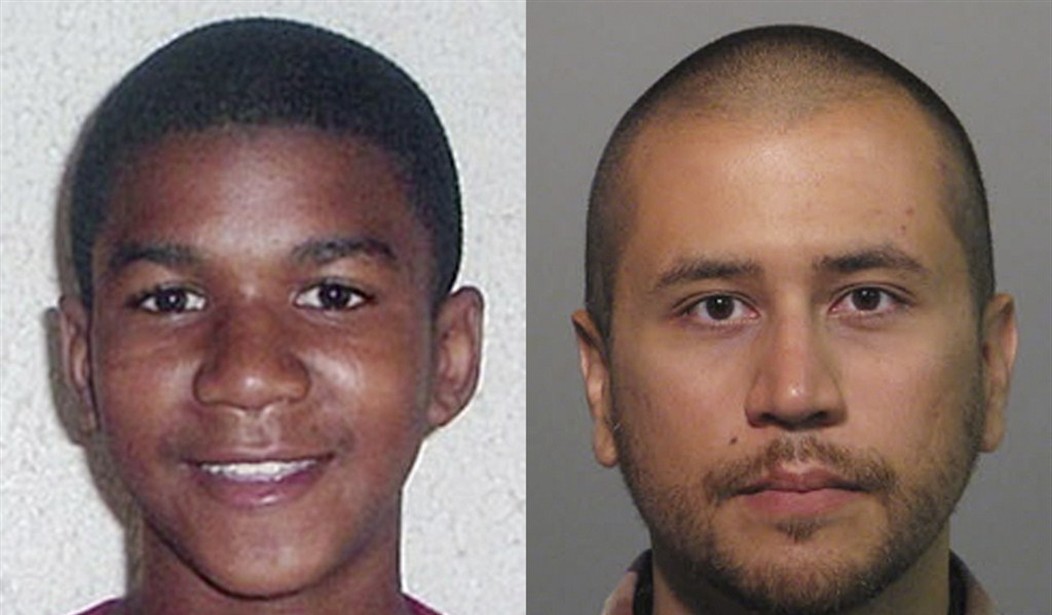The conversation regarding race followed this month's decision by a Florida jury to acquit George Zimmerman in the killing of Trayvon Martin -- and it is continuing.
In watching the media coverage of the responses, it might appear that the conversations are more heated than thoughtful.
President Obama waded into the topic last Friday. "You know, when Trayvon Martin was first shot, I said that this could have been my son," he told reporters. "Another way of saying that is Trayvon Martin could have been me 35 years ago. And when you think about why, in the African-American community at least, there's a lot of pain around what happened here. I think it's important to recognize that the African-American community is looking at this issue through a set of experiences and a history that doesn't go away."
Obama articulated the answer to the first-level why question, but the whys should be asked in a deeper context. Why is the why?
Why does the African-American community have a history that does not go away?
Why does Obama identify with a teenager who was found by a jury to have been shot in self-defense while beating Zimmerman? The Zimmerman legal defense team responded with a statement on its website, gzlegalcase.com.
"While we acknowledge and understand the racial context of this case, we challenge people to look closely and dispassionately at the facts. We believe those who look at the facts of the case without prejudice will see that it is a clear case of self-defense, and we are certain that those who take a closer look at the kind of person George Zimmerman is -- something we understand the Department of Justice is currently doing -- we are confident they will find a young man with a diverse ethnic and racial background who is not a racist, a man who is, in fact, sensitive to the complex racial history of our country. ... Before you judge George Zimmerman or disparage the verdict of the citizen jury, understand the facts in full. Agree not to listen to just what meets your predisposition, but to accept what exists."
Recommended
Why?
Why are the facts in this case hard to accept?
Zimmerman's fight with Martin left him with a broken nose, two black eyes and two cuts on the back of his head.
Do various groups agree on the facts in the case? If not, why?
The approval/disapproval of the Zimmerman verdict varies greatly based on race, according to an ABC News/Washington Post poll conducted by Langer Associates, released this past Monday (a random sample of 1,002 adults, July 18-21, 2013, by telephone in English and Spanish, with sampling error of plus or minus 3.5 percentage points).
When asked whether the shooting was justified, 5 percent of blacks said yes, compared with 33 percent of whites and 16 percent of Hispanics.
Why?
Why did the jury believe it was self-defense, but only 5 percent of blacks concur?
African-Americans overwhelmingly disapprove of the verdict -- 86 percent to 9 percent in favor; whites strongly approve -- 51 percent to 31 percent opposed. This might lead one to believe that Americans' views are based primarily on the color of their skin.
Why?
When asked if the federal government should pursue civil-rights charges against Zimmerman, African-Americans responded yes/no by 81-13 percent; with whites responding yes/no by 27-59 percent.
Why?
Why are the views so different? Is it the opinion-makers and news media that the various groups turn to in order to understand the facts involved? Is it personal history? If everyone were exposed to the same facts, understanding, and media coverage, would their conclusions still vary so widely?
If Zimmerman -- whose mother is Peruvian and father is white -- was labeled a white-Hispanic by the media, why isn't Obama -- whose mother was white and father African-American -- labeled a white African-American?
These are hard questions that lead not to answers, but to more questions. But that is what a real conversation is, a place to dig deeper to uncover and bring understandings, misunderstandings and points of view into the light for others to listen to and reflect upon.
A real national conversation about race would delve deep into the why, without laying blame; to foster understanding, rather than simply asking the what.
























Join the conversation as a VIP Member